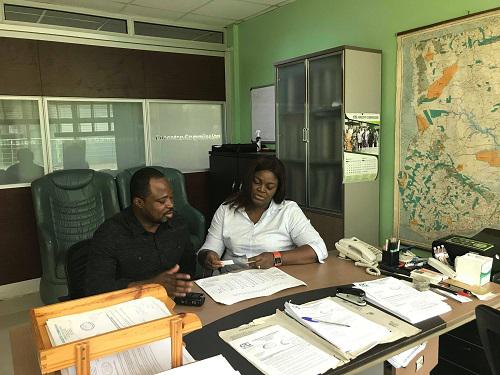Marshall Alhassan Adams
Other projects
8 Sep 2021
Biodiversity Conservation through Cocoa Agroforestry Systems: How to Support Smallholder Farmers Manage Integrated Landscape in Ghana
Introduced at the global level, a little over fifteen years ago, the European Union Forest Law Enforcement, Governance, and Trade aims to address illegal logging and promote sustainable forest management. With a focus on Ghana as a detailed case study, my project aims to increase our understanding of good governance performance under the EU FLEGT. Satyal (2018) suggests that the impact of EU FLEGT implementation on good governance practices in Ghana is not well understood because there are still outstanding governance issues that remain under-researched or disputed. By using Q methodology, my project draws on the experiences and insight of stakeholders to assess the impacts of EU FLEGT implementation using the good governance principles as the Q sort statements. The perspectives and experience of EU FLEGT stakeholders may have a significant role to play in the policy discussion of how to improve sustainable forestry practice in Ghana and other jurisdictions.

With a focus on Ghana as a detailed case study, this project objective aims to increase our understanding of good governance performance. Ghana is one of the designated EU FLEGT VPA countries and was the first to engage in the VPA processes in order to strengthen forest law enforcement. The negotiations of VPAs began in March 2007 and came into force on December 1, 2009. Now, after almost ten years of its planning and implementation activities, sufficient time has therefore passed to be able to assess the VPA processes in Ghana and their impacts so far. Ghana is seen as one of the potential frontrunners of the EU FLEGT process and is possibly becoming the first country in Africa and second country in the world after Indonesia for issuing EU FLEGT licenses (Karsenty, 2016). The implementation practice of VPA has stirred up some controversies in response to its successes and challenges (see Hansen et al., 2018; Hirons et al., 2018; Rutt et al., 2018), highlighting the need for further critical and independent assessment of the situation. These developments altogether offer an interesting case study with which to examine the existing forest governance practices under EU FLEGT VPA.
We will conduct Q sort study from July to September 2019 to provide insights into how good governance principles should be well-adapted and measured to better understand VPA impacts in Ghana. A Q study is closely associated with human subjectivity that is self-referent and that is proven to have structure and form (Brown, 1980). Through a distinct index card-sorting task, stakeholders involved in the implementation of EU FLEGT measures in the Ghanaian forestry sector will be able to communicate their understanding of VPA impacts by arranging and ranking labelled statements into rows of most and least important VPA impacts that reflect their viewpoints of good governance practices in Ghana. Addressing the EU FLEGT implementation gap in other forest-rich jurisdictions using the Ghanaian experiences is central to effective forest conservation. Findings from such a country-specific case study may form the basis of a broader comparative analysis of how countries are advancing the implementation processes at the domestic level to promote legal and sustainable forestry.